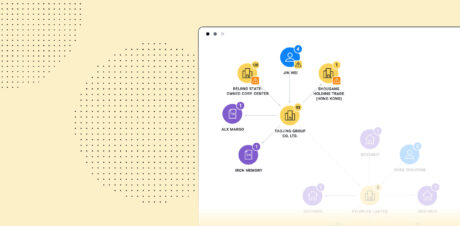Just as a modern vehicle is a complex machine with thousands of moving parts, its supply chain is an equally sprawling, intricate network. With components sourced from every corner of the globe, the automotive industry faces a unique and escalating set of compliance challenges. Modern regulatory requirements are major roadblocks for OEMs and other automotive companies that can lead to costly fines, operational shutdowns, and significant reputational damage.
>> Supply chain challenges faced by automotive companies <<
As the tariff landscape continues to evolve, automakers uniquely face new questions of balancing price hikes with tariff mitigation. To thrive in this new landscape, automotive leaders must understand the full spectrum of compliance risks and implement a proactive strategy to address them head-on. Navigating these challenges requires unprecedented visibility into corporate networks and trade relationships.
Core Challenges Facing OEMs
Tariff Exposure Assessment
In an ever-changing geopolitical landscape, tariffs can significantly impact a company’s bottom line. A key challenge is spotting tariff-affected suppliers before they disrupt business operations. By generating a list of alternative suppliers, companies can develop a proactive sourcing strategy that mitigates risk and ensures business continuity.
>> Why supplier diversification is a key tariff mitigation strategy for OEMs <<
Forced Labor Compliance
One of the most pressing global issues is forced labor. Automotive companies must go beyond their immediate suppliers to identify and mitigate potential risks deep within their sub-tier supply chains. Failure to do so can lead to devastating consequences, including detentions of shipments at the border, operational disruptions, and long-term reputational damage that can erode consumer trust.
>> Learn how to ensure forced labor compliance in automotive supply chains <<
Supply Chain Security
As vehicles become more connected, new regulations seek to secure vehicles from foreign adversaries. Automotive companies need to ensure their supply chains are secure and free from entities tied to problematic jurisdictions, such as Russia and China, that could pose a national security risk. It’s also crucial to uncover links to known counterfeiters to safeguard product quality and brand integrity.
>> What you need to know about the BIS connected vehicles rule <<
Trade Compliance
With the industry’s far-reaching global customer base comes the responsibility to mitigate downstream exposure to sanctioned entities, military end users, state-owned enterprises, and other restricted parties. By thoroughly analyzing customer trade networks, automotive companies can proactively prevent violations and avoid severe penalties.
>> Discover How An Auto Manufacturer Isolates Critical Risk With Sayari Map <<
Conflict Minerals Compliance
Compliance with conflict minerals regulations is another critical challenge for OEMs. This involves tracing minerals like tin, tantalum, tungsten, and gold through the supply chain to ensure responsible sourcing. Adhering to these requirements is not only a matter of legal compliance but also a demonstration of a commitment to ethical business practices.
ESG Reporting
Beyond legal mandates, there is a growing demand for robust Environmental, Social, and Governance (ESG) reporting. Automotive companies are increasingly expected to provide sub-tier insight into forced labor, deforestation, and other reputational risks tied to negative news. This transparency supports broader ESG initiatives and builds trust with consumers and investors.
Sayari: A Solution Built for Visibility
To overcome these multifaceted challenges, automotive companies need a partner that provides deep, transparent, and trusted risk intelligence. Sayari offers solutions with these key differentiators:
- Transparency: Sayari surpasses ‘black box’ solutions by providing clear data lineage and source documentation that empowers clear-eyed decision making and reporting
- Unparalleled Visibility: Sayari’s graph database of 8+ billion corporate and trade records illuminates complex corporate networks that traditional tools simply can’t detect.
- Data Depth: By combining trade data and ownership data, Sayari solutions provide crucial insights into challenging jurisdictions like China.
- Trusted by Regulators: Sayari is used by government agencies, including U.S. Customs and Border Protection, giving automotive companies confidence that they are relying on data that meets regulatory compliance standards.
The automotive industry’s supply chain is more complex than ever, and so are its compliance challenges. Our automotive customers are prioritizing a proactive and transparent approach to risk intelligence to better navigate these issues, reduce enforcement risk, and build a more resilient and responsible supply chain for the future.
>> Discover how one auto manufacturer accelerated supplier risk prioritization <<
Ready to learn more? Request a demo to see how a comprehensive risk intelligence solution can help you.



